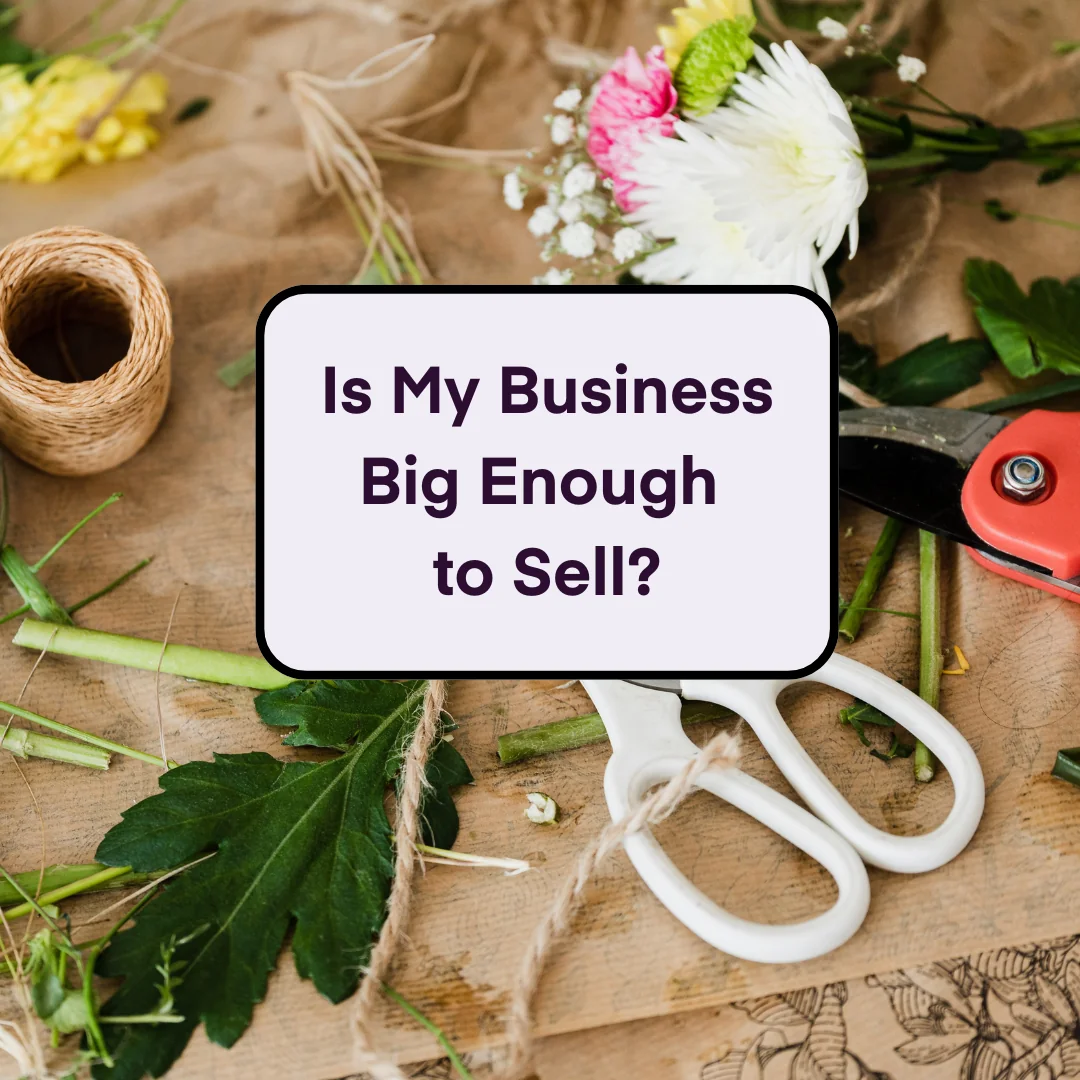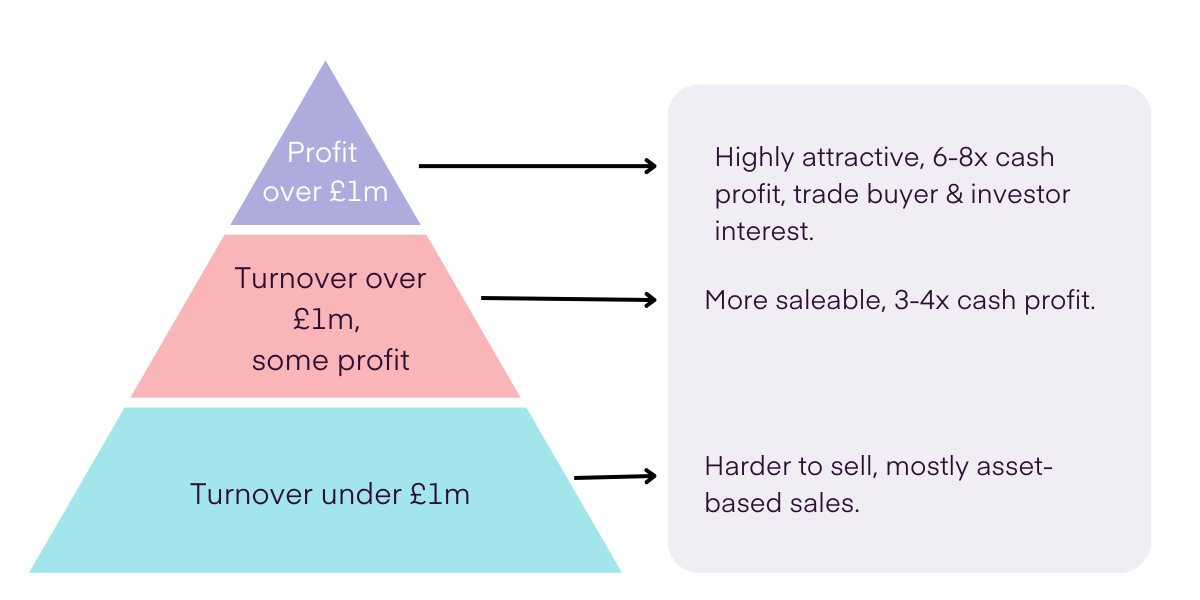
Legal
Legal Advice
Is My Business Big Enough to Sell?
12 Feb 2025In this article Neil Nichols, Founder of Accounts and Legal discusses whether the size of a business has any effect on the likelihood of a sale. In 2021, alongside his brother Robert Nichols, Neil sold Portico, the company they'd built together. Since then, he's helped countless business owners sell their business, here, he explore the topic.Many small business owners consider their businesses too small to sell, and, when the time comes, opt to shut up shop instead which isn’t an ideal situation. There is an active market for small businesses sales, but it is certainly true that the prospects for a successful exit are far better for SMEs with bigger numbers.
What size does your business need to be to get a decent sale?
We’d categorise SME sales into three groups:- Turnover under £1m: these businesses are hard but not impossible to sell
- Turnover over £1m, some level of profit: these business should be saleable
- Profit over £1m: this is where you want to be, an active market for purchasers
Turnover under £1m
Having a turnover approaching £1m is something to be proud of, but the problem with these businesses is that they are often very reliant on the owner, who is usually the manager of the business (and critical to its operations). Because of this, these businesses are usually only of interest to other owner-managers, rather than investors or other trade buyers. Furthermore, bank funding is hard to get on these types of business, because of the associated risk. As a result, these sorts of business are often sold for the value of their assets, plus a small premium. However, if there is no sustainable income without the retention of the outgoing owner, the business won’t be worth anything more than the value of its depreciated assets, less any debt it might have.Turnover over £1m, some level of profit
For businesses with turnover in excess of £1m and some level of profit, the options are better. The business is likely to be growing, with a few years of profitable trading under its belt. That might mean it has access bank funding, and will be viewed by lenders and potential purchasers as a lower risk proposition. That said, valuations for these types of businesses might only be 3 – 4 times its cash profit.Profit over £1m
However, for businesses with profit of over £1m, the prospects are really quite good. Not only are these businesses much easier to finance, there is less perceived risk and, as a result, the sale is likely to be of interest to the full range of investors and purchasers. Being able to support bank funding immediately inflates the purchase price, in exactly the same way that mortgages increase what someone will pay for a house. A business with a track record of growth and solid profit margins, should be able to borrow up to 3x its cash profit. That means that purchasers can borrow meaningful amounts of cash to add to their equity, when settling on a purchase price. But even more important than that, a business of this size should be able to attract interest from trade buyers and professional investors. Trade buyers, will likely have lending arrangements already in place, and by virtue of their size, be valued a good multiple of their own profits. And professional investors will have good access to banks willing to provide debt for leveraged buy outs.
























